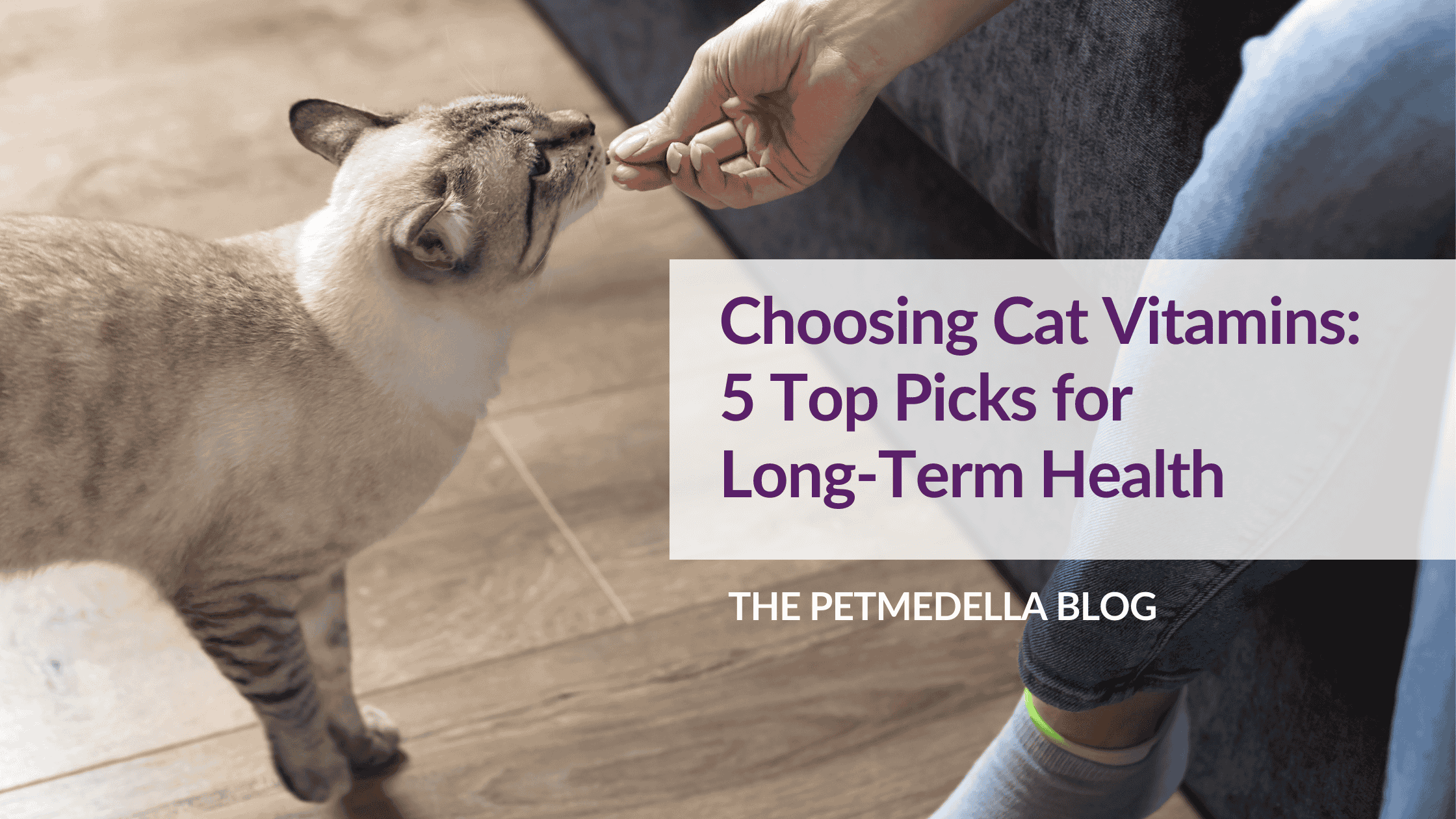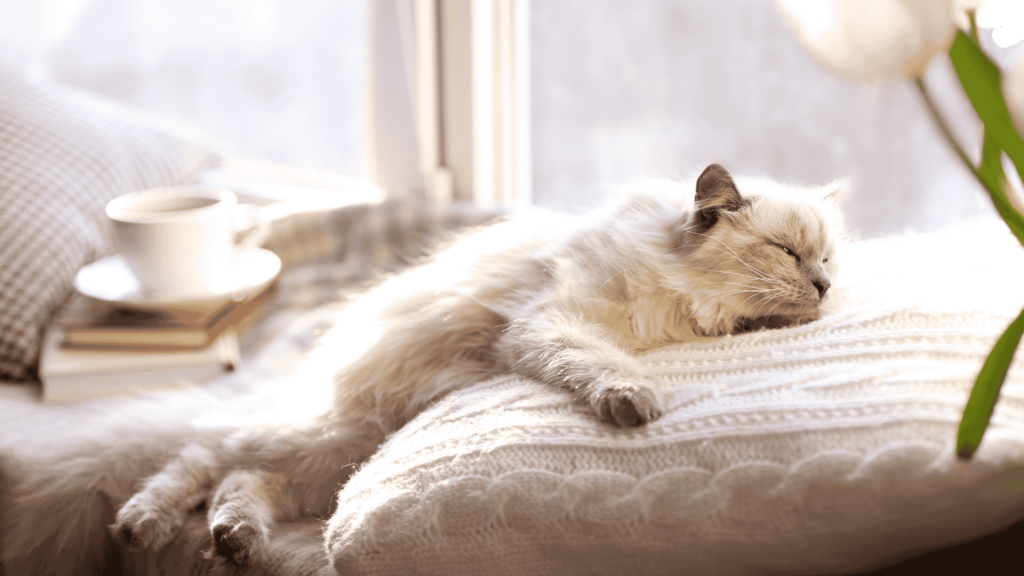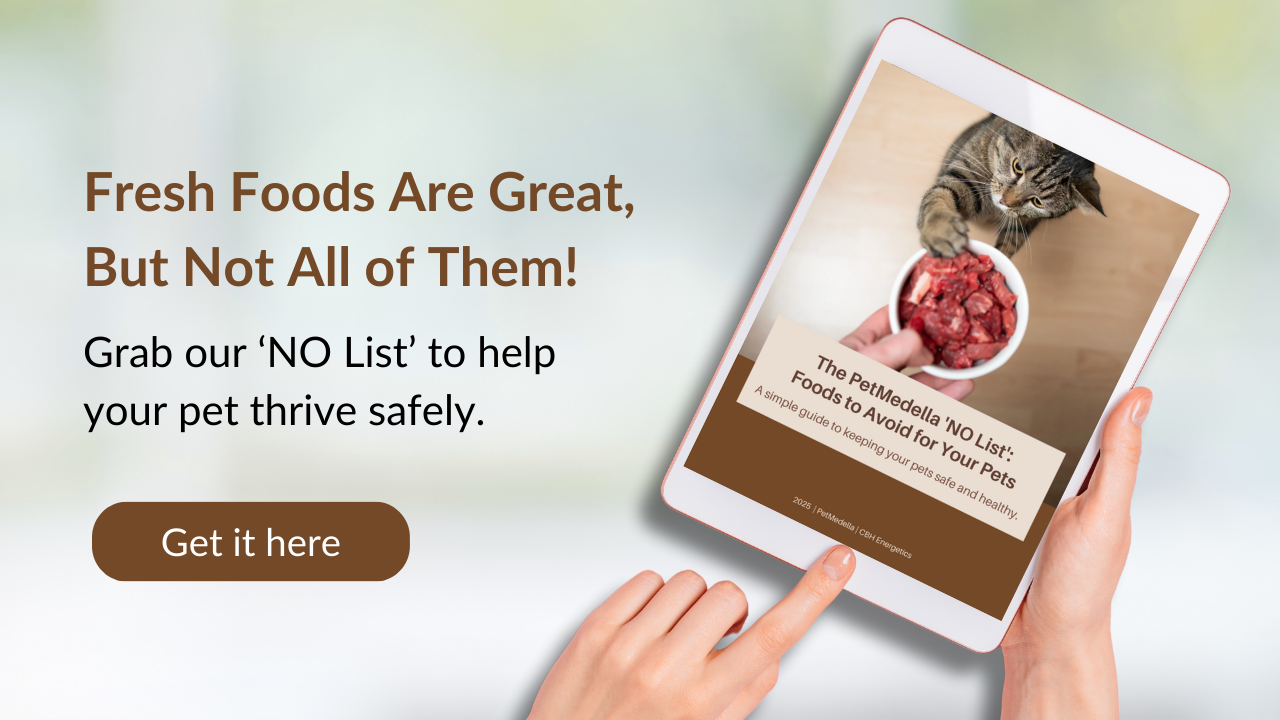
Do You Need Cat Vitamins for Your Beloved Feline?
We all know cats are the OG’s of self-care. They’re natural groomers, expert nappers, and full of personality. But even with all their independence, cats have specific health needs that may not always be met through diet alone.
Your feline friend may benefit from cat vitamins that support their health in specific ways—Whether it’s keeping their coat shiny enough to mirror the moon, balancing their digestion, or helping them gracefully leap onto the highest shelf, supplements can give your kitty the extra boost they need to maintain their majestic well-being.
Some supplements target specific health needs, but the best supplements for cats can provide support on multiple fronts, ensuring your kitty is ready for every playful pounce and peaceful nap. In this blog, we’ll cover our top five cat vitamins and supplements to help your cat thrive long-term.

How to Recognize Nutritional Gaps in Your Cat’s Diet
Cats are creatures of habit and often act like their food bowl is theirs and theirs alone—thank you very much. But even the most purrfect diet can have gaps.
For instance, if your cat’s coat has lost its luster or has become dry and flaky, it might indicate a deficiency in essential fatty acids. Similarly, lethargy or reduced playfulness can sometimes be linked to low levels of vital nutrients that support energy production.
Digestive System issues, like frequent upset stomachs or irregular bowel movements, might be another red flag. These symptoms could signal that your cat isn’t fully absorbing nutrients from their diet, leading to discomfort and a lack of vitality. Supplements targeting these gaps can help address these issues, allowing your cat to feel and look their best.
Why Standard Cat Food Isn’t Always Enough
Most commercial cat foods are formulated to meet basic dietary standards but may not be optimized for your cat’s unique health needs. These foods are designed to deliver minimum nutrient levels to sustain health, but they may lack the additional components that could take your cat’s nutrition to a higher level.
For instance, whether dry or wet, many cat foods may not contain the full range of Omega-3 fatty acids or the probiotics needed to keep a cat’s gut health in peak condition.
This is especially important for certain cats, like seniors who need more support for joint health, highly active cats with increased nutrient demands, or cats recovering from illness who require a bit more nutritional backup.
If you’re reading this blog and you also have a dog – we have a post on the 6 Best Supplements for Your Senior Dog!
When nutritional gaps or imbalances aren’t always obvious, bioenergetic testing provides insights that are otherwise difficult to detect.
The Full Scan delivers a comprehensive look at your cat’s wellness, pinpointing areas where there may be stress, whether in the joints, digestive system, hormonal balance, or immune health. By uncovering these imbalances, you can take a more focused approach to supporting your cat’s specific needs.
The Remedy Scan offers a personalized regimen of the best cat supplements for their current health profile. From herbs and homeopathics to nutritional support, the scan identifies what best complements your cat’s unique bioenergetic needs, giving them precisely what they need to stay balanced.

1. Omega-3s: Supporting Skin, Coat, Joint, Kidney Health
Fish oil Omega-3 fatty acids in fish oil and marine algae have been studied in animals more than most dietary supplements.
These healthy fats help promote a shiny, smooth coat by nourishing the hair follicles, which can reduce shedding and, in turn, minimize hairballs—making grooming easier for both you and your cat.
Omega-3s also support joint health by reducing inflammation, making them especially beneficial for older cats with joint stiffness and mobility issues.
Research has shown that Omega-3 fatty acids can help lower blood pressure and reduce protein loss in urine, potentially slowing the progression of kidney disease. Cats with kidney disease who consumed diets rich in EPA, an Omega-3 fatty acid, were found to have longer survival times.
How to Use: Omega-3s come in liquid or capsule form, making adding a few drops to your cat’s food easy. Be sure to choose a high-quality, cat-safe Omega-3 supplement for safe and effective use.
2. Probiotics: Gut Health for a Happier Cat
A healthy gut equals a happy cat—after all, no one likes a cat-astrophe in the litter box. If your cat is frequently dealing with digestive issues, such as diarrhea, constipation, or excess gas, it may indicate that their gut flora is out of balance.
A Bioenergetic Full Scan for your cat can help identify stressed systems, including the digestive system.
However, please note that PetMedella does not diagnose health conditions. If your pet is experiencing any medical concerns, we recommend consulting a licensed veterinary professional.
Probiotics are live bacteria and yeast that restore balance to the gut. As supplements, they help support digestion, regulate bowel movements, and boost immunity. For example, probiotics can be especially helpful for cats taking antibiotics, as they can reduce harmful and beneficial bacteria. Adding a probiotic can assist your cat’s gut to maintain optimal health.
How to Use: Probiotics for cats are available in powders, capsules, or treats. Bifidobacterium and Enterococcus strains are particularly beneficial for feline digestive health.
3. Milk Thistle: Gentle Detox for Liver Support
Milk thistle is a time-tested herb renowned for its liver-protective properties. Whether your cat is dealing with toxins, aging, or experiencing liver issues due to other health conditions, milk thistle may help protect and support this organ.
The active compound in milk thistle, silymarin, is the key to its effectiveness. Studies have shown that silymarin has powerful antioxidant and anti-inflammatory effects, helping to neutralize harmful free radicals and reduce inflammation in the liver, and is considered a safe supplement by many conventional and holistic pet specialists.
By supporting liver cell regeneration, milk thistle helps maintain healthy liver function and supports the body’s natural detoxification processes.
Milk thistle can also benefit cats who may have been on medications that can stress the liver.
How to Use: Milk Thistle supplements come in liquid drops, capsules, or powders that can be added to your cat’s food.
4. Enzymes: Helping Cats Digest and Absorb Nutrients
Enzymes are natural substances in the body that regulate essential chemical reactions needed for daily functions, including digestion, energy use, and nutrient absorption. While healthy cats naturally produce enzymes, some may require additional support—especially older cats or those with digestive concerns.
As natural catalysts for digestion, they ensure your cat’s body is turning food into the energy they need to power through their favorite games of “stalk the feather.”
When a cat’s body doesn’t produce enough enzymes, it can lead to digestive issues such as bloating, weight fluctuations, and even a weakened immune system. Supplementing with enzymes helps improve digestion, enhance nutrient absorption, and prevent discomforts like gas, bloating, or occasional vomiting.
How to Use: Enzyme cat vitamins can be available in powder or liquid and added to your cat’s food.
5. PEA (Palmitoylethanolamide): Aiding in Pain Relief and Inflammation Control
PEA, short for Palmitoylethanolamide, can help cats manage pain and inflammation.
Naturally produced by the body, PEA is a cat vitamin that has anti-inflammatory properties and is often used for cats with arthritis, injuries, or other pain-related conditions. Research shows that PEA can work as a natural alternative for pain relief, offering an option that doesn’t have the same side effects as many conventional medications.
How to Use: PEA is available in capsule and powder form. As with all supplements, ensure you use a cat-appropriate dosage and format. Since PEA works on a cellular level to reduce pain and inflammation, it’s a valuable addition to a long-term wellness routine, especially for aging cats or those with joint issues.
Supporting Their Health with the Right Cat Vitamins
While a balanced diet is the most important, supplements for cats can provide the extra support needed to address specific concerns, from joint mobility and digestion to pain relief and liver function. Incorporating high-quality cat vitamins and supplements into your feline friend’s routine can help them lead a healthier life.
For the most personalized approach, consider utilizing tools like bioenergetic testing to understand your cat’s health better and show a balanced regimen specifically for them.

